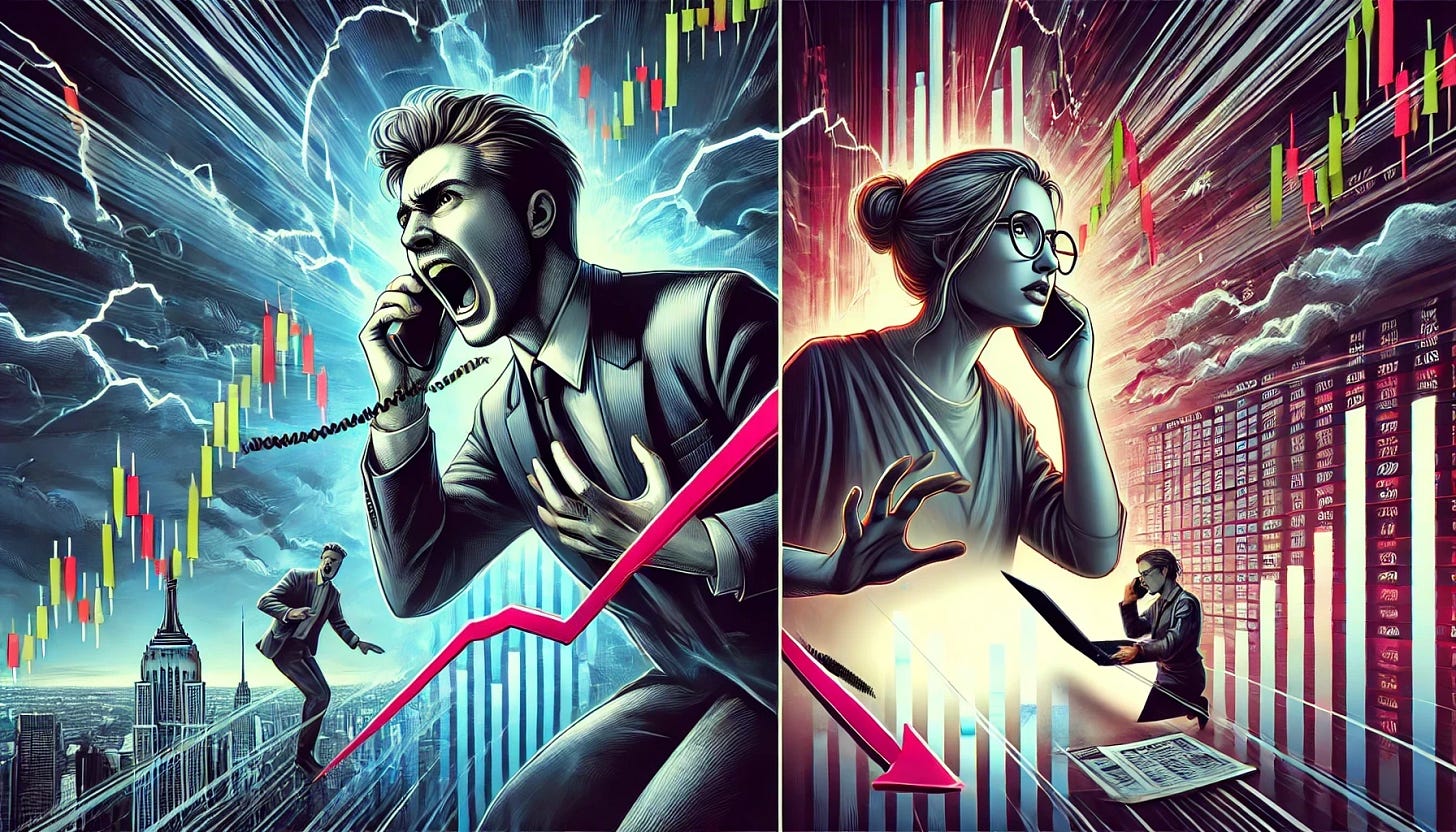What this week's market crash really says about the state of AI
And why it's more important than ever that investors focus on value creation over hype
Earlier this week, I received some nervous calls about the state of the AI world, with questions around whether the AI “crash” had finally arrived given the events in the market. The headlines from earlier this week were blunt:
Business Insider: “Tech stock sell-off may herald the long-awaited AI reckoning”
Bloomberg: “AI Rally Halts Abruptly as Global Selloff Sinks Tech”
Fortune: “Monday’s stock market crash shows that the AI revolution isn’t quite here yet”
So, has the AI bubble finally burst?
No way.
And, as the dust settles, there are two reasons that Monday did not shake my confidence as an investor in AI startups.
First, the sell-off was about much more than AI. Investors got scared over US interest rates, inflation, a weak American employment report, the unraveling of the “Japanese yen carry trade,” all culminating with fears around volatility finally reaching boiling point.
Hype and investor concerns about the ROI of AI had a role to play. It was a spectacularly bad day for big tech companies, who have notably spent billions on AI initiatives and investments. The “Magnificent Seven” (Alphabet, Amazon, Apple, Meta, Microsoft, Nvidia, and Tesla) lost more than $650 billion in market cap. Nvidia, the AI standard bearer in the public markets, was particularly hard hit.
If you look closely, the corner of the AI world that is “bursting” is the part that we at Merantix always saw as a bubble: so-called “wrappers” without a fundamental business model. We’ve avoided these sorts of companies, and as The Wall Street Journal reported this week, some of those tools are now getting bailed out by Big Tech companies like Google and Amazon who are “licensing” their technologies and acquiring their teams.
Party like it’s 2000
So is AI over and done with? Far from it. I’ve said this many times before, but I believe this moment in time — this AI industrial revolution — is like the early days of the internet. If this is like the year 2000, the real category-defining companies of the future have yet to built. Or they are only being built right now. There will be bumps in the road, but I believe we are heading in one direction: forward. AI is simply far too impactful to think otherwise.
Some believe that Monday’s sell-off echoes the 2000s bubble. Did that dot-com crash stop the development of the internet, as some people foolishly warned at the time? Of course not. It was only the beginning, but there are always winners and losers.
Indeed, in my opinion there will also likely be consolidation among the large infrastructure providers, with only room for a few major players as LLMs become commoditized. Tough times in this extremely high-profile and well-funded space would undoubtedly spark even more scary headlines about AI being just a passing fad.
Which brings me to the second reason I’m still confident in AI. I’ve never felt more sure of our investment strategy at Merantix: focusing on solid value creation and not simply imaginary AI forces.
It’s about value creation, now and always
Across our current portfolio and with the investment pipeline we have developed, I see companies that are leveraging AI to deliver quality products and services to their happy customers. Our venture Cambrium, for instance, recently announced a new investment from Google’s Gradient Ventures, a strong validation of their novel protein development work (with their first product, a micro-molecular and skin-identical collagen, already seeing huge traction in the market). Or take our venture Deltia, which recently announced 4.5 million Euros in seed funding. Deltia modernizes manual assembly lines with computer vision and AI, with customers like Viessmann and ABB.
That’s not hype, that’s real business achievement and real technological innovation.
There will be many more market life cycles in AI. I expect there will also be many more headlines written that exuberantly rave about AI’s promise — and later headlines rushing to declare AI dead. Rinse and repeat.
We don’t concern ourselves with either, keeping our eye on identifying the real AI value drivers of tomorrow.




This is such a good example for similar hypes in history that turned into hysteria - or at least historically wired legislation. In the early days of the automobile, they had the red flag laws that Made it mandatory for vehicle drivers to operate with at least three professionals on board of a vehicle, a mechanic, another engine specialist and one person carrying a red flag 50 meters ahead of the vehicle to indicate horse riders or coaches that a vehicle is approaching and this shows how people judge innovation and it becomes more important to stay calm and on track of any development that creates value. I totally agree that it becomes more important for entrepreneurs and investors to identify these areas and navigate through the ups and downs of the hype or hysteria 🙌